

A typical Lithuanian loghouse in Aukstaitija National Park. © Robert Harding / Shutterstock
One of Europe’s smaller gems, Lithuania is speckled with lakes, covered by forests and lapped at by the Baltic Sea.
Yet the country is rich in more than just natural beauty. The cobblestone medieval lanes of its capital, Vilnius, are packed with spired churches that beckon with their baroque finery, while the unparalleled art deco architecture of its second city, Kaunas, has recently earned a UNESCO designation.
Beyond its main two cities, Lithuania’s charms are many and varied. Pagan culture still permeates Europe's last country to be Christianized – a legacy traces you can see in the krikštai (wooden grave markers) an folkloric carvings dotting the country; the wrought-iron craftsmanship decorating the poignant Hill of Crosses in Šiauliai; and the medieval-style music of alternative music festivals such as Mėnuo Juodaragis and Jotvos Vartai.
Lithuania is one of the best countries to visit next year. See our full list of Best in Travel 2025 winners.
And there’s more. Pamper yourself in the spa resort of Druskininkai. Seek out vestiges of Lithuania’s Soviet past at Grūto Parkas sculpture park; Kaunas’ Atomic Bunker; the Cold War Museum at Žemaitija National Park; and the Ignalina nuclear-power station. Seek out traditional villages in Dzūkija National Park, party all night in beachfront Palanga and explore the coastline, forests and sand dunes of the bewitching Curonian Spit on foot and on two wheels.
At these sites and beyond, you’ll discover that spark that makes Lithuania so compelling.

When should I visit Lithuania?
It’s possible to visit Lithuania year-round, though the country is at its best (and busiest) in high summer, when days are long, nights are short and mild, and the Baltic Sea is relatively warm. Lithuanians become exuberant during numerous summer festivals: highlights include Klaipėda’s nautical-themed, 4-day Sea Festival; the Lithuanian Song and Dance Festival in Vilnius; Palanga’s frenetic Summer Festival; and the medieval frolics of the midsummer Rasos Feast at Kernavė. Since July and August bring crowds to the supremely scenic beaches and forests of the Curonian Spit, consider staying in the smaller villages of Preila and Pervalka rather than the tourist hotspot of Nida.
Late spring is a delight, with a proliferation of wildflowers in the countryside. September through November sees many sunny days, with the hiking and cycling in various national parks excellent (and crowd-free) – plus the added attraction of leaves changing color. Chilly nights in early spring and late autumn are a perfect time to attend the Vilnius International Film Festival, Mama Jazz and Kaunas Jazz Festival.
Budget-conscious travelers might be drawn to winter (December to February), when there are few tourists, accommodation is inexpensive (outside the Christmas/New Year period) and the historic city centers of Vilnius and Kaunas, as well as Trakai Castle, are particularly picturesque under a covering of snow.
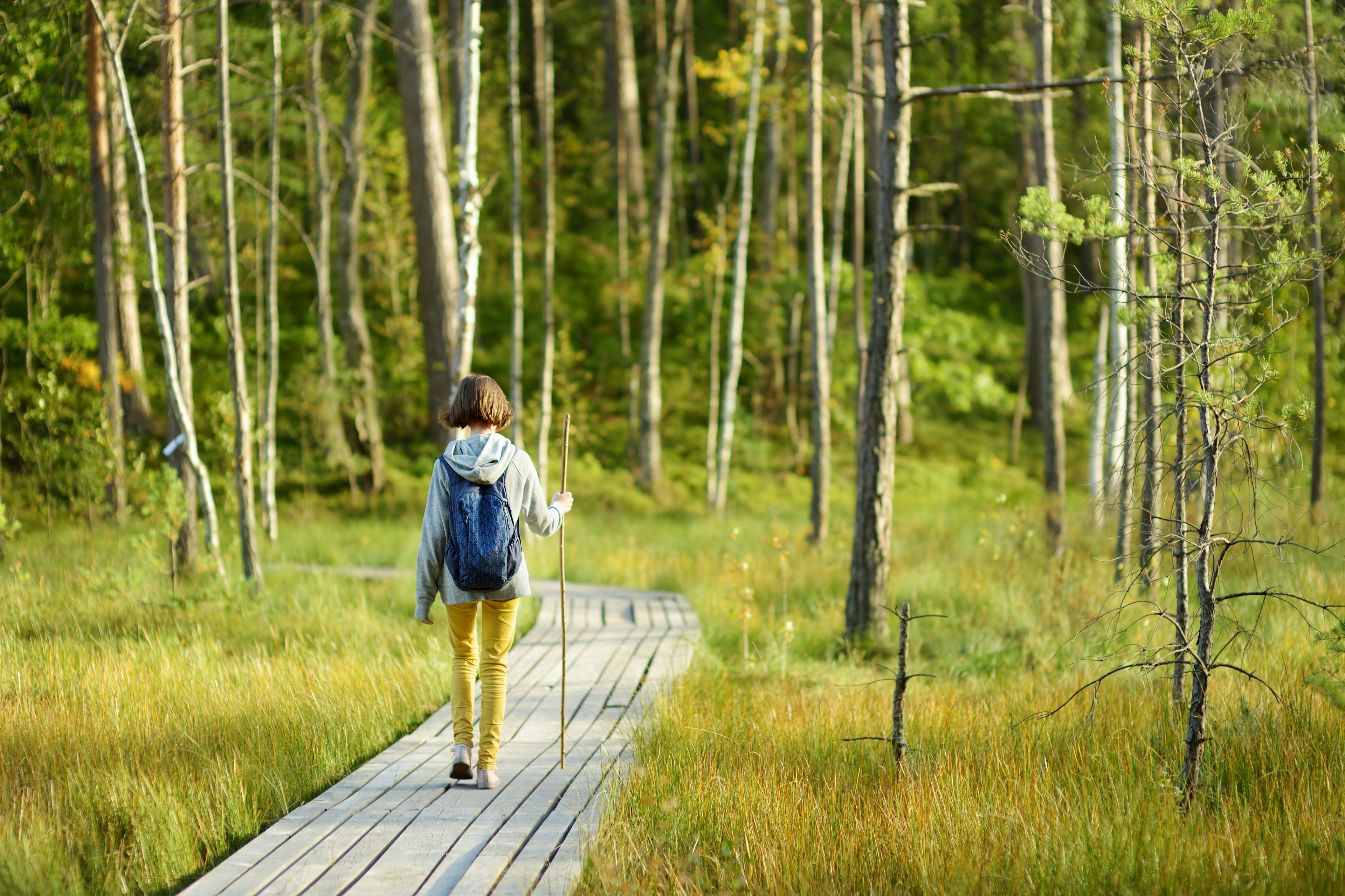
How much time should I spend in Lithuania?
You can pack a lot into a weekend in Lithuania, from soaking up the atmosphere in Vilnius to visiting the spectacular castle on Trakai Island – an easy day trip from the capital. Lithuania also richly rewards more in-depth, leisurely exploration.
If you only have a couple of days, focus your energy on Vilnius for at least one of them. Wander its cobbled Old Town, summit Gediminas Hill, visit the Museum of Occupations and Freedom Fights and check out the breakaway “mini-republic” of Užupis.

The best way to stay connected.
Saily provides a hassle-free solution to travel data — just choose your data plan and prepare for your trip. When you get to your destination, you can go online right away.
Get your eSIMIn 4 days, you can take a bus west to Klaipėda and a ferry onward to the Curonian Spit, where you can walk and cycle its trails, hike up giant sand dunes, visit a superb amber museum, sun yourself on white-sand beaches and explore its fishing villages. Alternatively, you can head northeast to Aukštaitija National Park to hike along forest trails between traditional tiny villages, and paddle board on the lakes.
If you have a full week, consider heading south to Druskininkai to take its mineral waters and wander among the Soviet statuary at Grūto Parkas. You can pay your respects at the Hill of Crosses, visit a Soviet nuclear bunker in Žemaitija National Park then taste Lithuania’s traditional farmhouse-style beer in Biržai.

Is it easy to get around Lithuania?
Lithuania’s two major airports (at Vilnius and Kaunas) offer direct flights to cities all over Europe. From Vilnius International Airport, buses 1 and 2 run frequently to the city center (25 minutes); there’s also a train from the airport (once hourly; 10 minutes), and taxis and Bolt rides are reasonable (€10–15). Kaunas International Airport is reached by bus 29G from the center of town, and takes 45 minutes to one hour; a taxi (30 minutes or so) should cost less than €20. Tiny Palanga airport serves a few international cities, with bus 100 timed to meet the flights.
Once you’ve arrived in Lithuania, it’s easy to get around. Vilnius and Kaunas are covered by a comprehensive network of inexpensive public buses. City centers are very pedestrian-friendly, with many attractions clustered close together. Cyclists will love the ever-growing networks of bike lanes, and bicycles are easy to rent from multiple docking stations; you can also opt for Bolt electric scooters. Cycling is a terrific way to explore destinations on the Baltic coast, such as the Curonian Spit and the Nemunas Delta, as well as the forest-cloaked Aukštaitija and Žemaitija National Parks.
Comfortable, inexpensive trains are particularly useful for traveling between Vilnius and Kaunas, Ignalina and Šiauliai. For other routes, intercity buses – which link all major cities and towns – are the faster option. For maximum flexibility, consider renting a car to get between multiple destinations. Roads are good quality, signage is simple and – other than in cobblestoned town centers – parking isn’t hard to come by.

Top things to do in Lithuania
Once you’ve visited Vilnius’ Cathedral Square, wandered the Old Town’s narrow lanes, admired the splendid architecture and summited Gediminas Hill, consider the city’s more offbeat attractions. The Museum of Occupations and Freedom Fights tells the sobering yet compelling story of how Lithuanians fought to keep their culture alive in the midst of Polish, German and Soviet occupation and repression. Further testimony to this fierce spirit of independence is the renegade artists’ republic of Užupis. Finally, if you’ve never visited a Soviet prison before, check out Vilnius’ latest attraction: Lukiškių Kalėjimas 2.0, a penitentiary turned arts venue.
Dining-wise, in Vilnius you can choose between Lithuanian classics such as potato pancakes, pork roasts and dumplings at the kitschy-yet-fun Etno Dvaras, or tasting menus of reimagined Baltic cuisine, paired with carefully chosen wines or original nonalcoholic beverages made in-house, at Nineteen18 (book ahead). In Kaunas, opt for meaty stews and beetroot soup amid rustic farmyard decor at Bernelių Užeiga, or make reservations at Uoksas for menus crafted from sustainable, seasonal ingredients harvested from the Baltic Sea.
An easy half-day trip from Vilnius is Trakai, home to Lithuania’s most picturesque castle. Since the monument sits on an island in Lake Galvė, we recommend renting a stand-up paddle board to take it in from all angles. Visit the Karaite Ethnographic Museum on Trakai’s main street to learn about the fascinating Karaites, Lithuania’s smallest ethnic minority, before tasting Karaite kibinai (meat-stuffed pasties) at one of the lakeside restaurants.
In addition to its charming Old Town, Kaunas has two must-see apartments that exemplify the city’s art deco architecture. Small-group “experiential” tours take visitors to the Art Deco Museum and the Amsterdam School Museum through rooms painstakingly restored with period furnishings, while they drink sparkling wine from cut-crystal glasses and learn the stories of the apartments’ original inhabitants.

What’s my favorite thing to do in Lithuania?
A sojourn on the Curonian Spit. Basing myself in one of four former fishing villages along this long, delicate sliver of pine-covered land that juts out into the Baltic Sea, I love to wander the walking trails that crisscross its pine and birch woodlands, berrying in the summer, mushrooming in the autumn and taking dips in the chilly water.
It’s a joy to greet the rising sun from atop Parnidis Dune – the largest of the sand dunes that have earned the spit the nickname “Lithuania’s Sahara.” To be initiated into the mysteries of amber at Nida’s state-of-the-art Mizgiris Amber Museum. To commune with the devil and witch sculptures on Witches’ Hill in Juodkrantė. To sail on the Curonian Lagoon by day, and to watch its pearlescent waters on an endless summer evening, dining on eel freshly cured at the village smokery.
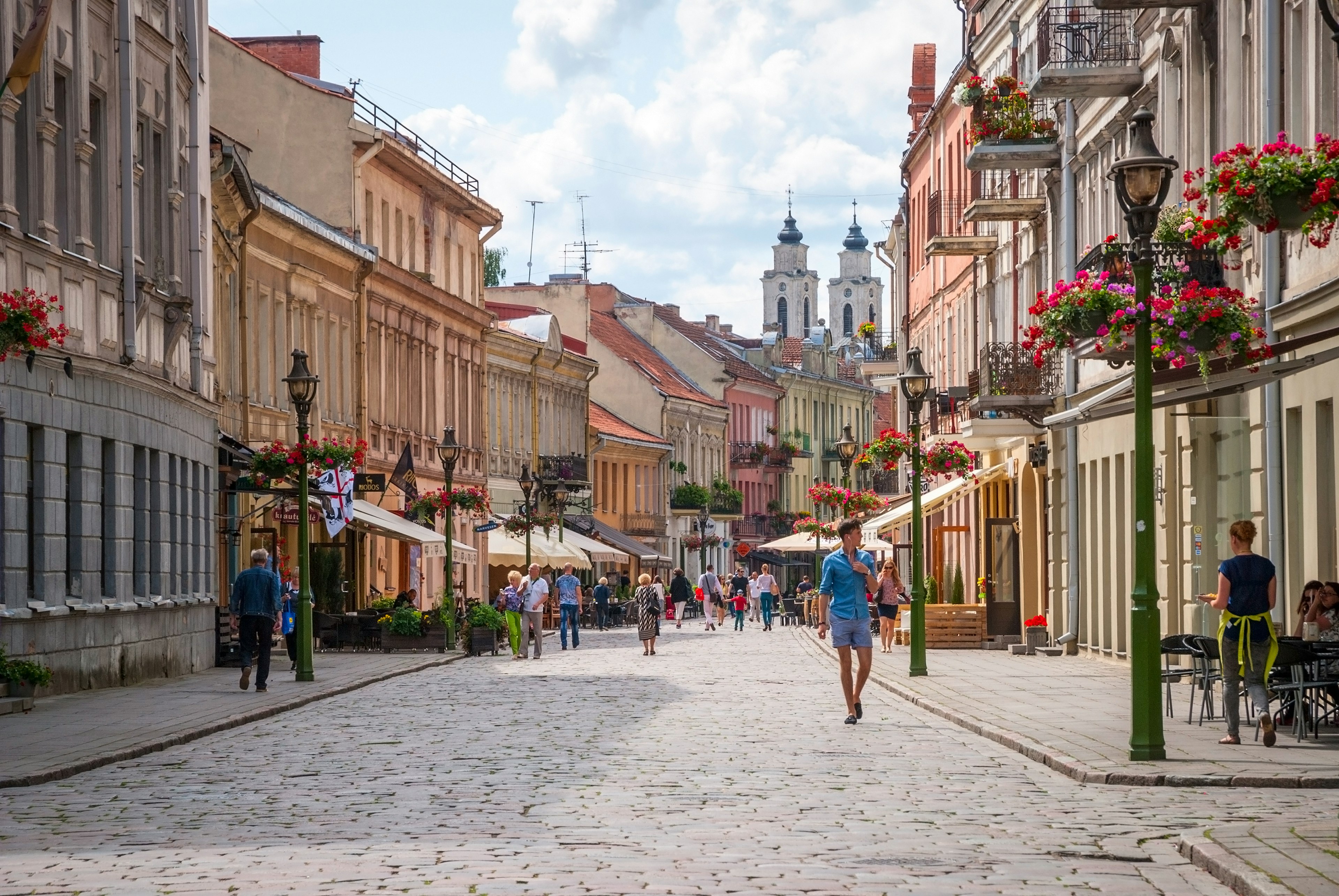
How much money do I need in Lithuania?
Lithuania is a relatively inexpensive country to visit – though accommodation prices vary considerably, depending on whether it’s the height of summer by the Baltic Sea or the depths of winter in a city.
Bunk in a dorm: €15–25
Basic double room: €35–65
Self-catering apartment (including Airbnb): €45–100
Public transport ticket: €1 for a single bus ride
Coffee: €1.50
Sandwich: €5
Dinner for two: €25–60
Bicycle rental: from €5/15 per hour/day
Pint of beer: €3
Museum entry: €3–7
Art deco tour: €24

Frequently asked questions about Lithuania
What languages are spoken in Lithuania?
Lithuanian is the national language. While older generations also speak Russian, Lithuanians in their 20s and 30s tend to speak very good English.
What’s the nightlife like in Lithuania?
Larger cities such as Vilnius and Kaunas have vibrant nightlife scenes, with trendy wine and craft beer bars, clubs hosting DJ sets and live-music venues.
Do Lithuanian restaurants cater to vegetarians and vegans?
Vegetarian diets are quite common in Lithuania these days, and while there are few exclusively vegetarian restaurants outside of Vilnius and Kaunas, the vast majority of restaurants everywhere will serve vegetarian dishes.
What should I pack for Lithuania?
Pack beachwear and casual attire if traveling during the summer months – but also bring layers, since temperatures drop at night, even in the warmest weeks. Since activity options are numerous, pack a variety of clothing options, including comfortable walking shoes. If you’re planning on dining in pricier establishments or clubbing, bring some smart clothes. In winter, you won’t regret packing a warm parka and snow boots.
- placement: fullWidth
- path: articles/bottom
- possible size: [970, 250], [970, 90], [728, 90], [300, 250], [320, 50], [1, 1],
- targeting:
{ "url": "guide-to-lithuania", "destination": "Lithuania", "continent": "Europe", "country": "Lithuania" }
Explore related stories




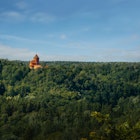
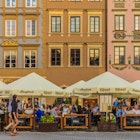

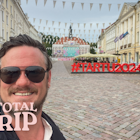 Art and CultureA Total Trip: What I spent in Tartu, Estonia - one of the European Capitals of Culture 2024
Art and CultureA Total Trip: What I spent in Tartu, Estonia - one of the European Capitals of Culture 2024Jan 26, 2024 • 6 min read

 HikingHow to plan an epic 2000-mile hike through Estonia, Latvia and Lithuania
HikingHow to plan an epic 2000-mile hike through Estonia, Latvia and LithuaniaSep 21, 2023 • 6 min read

